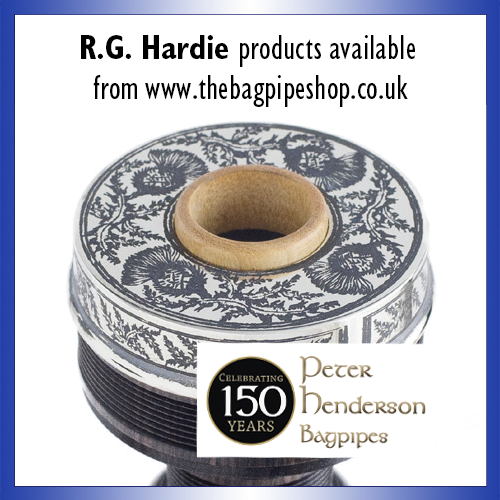By Seumas MacNeill

Probably no period in the history of piping will see such changes as did the 19th century. At the beginning of it, all pipers were Gaelic-speaking highlanders, solo performers whose repertoire consisted almost entirely of piobaireachd. All teaching was by canntaireachd, for no piper could read staff notation. Indeed, only the briefest of attempts – by Joseph MacDonald in 1760 – had been made to record our music in this convenient form.
By the end of the century many of the pipers were not Gaelic speakers, many of them were not highlanders, and some of them were not even Scots. Piobaireachd was still played by all the best pipers, and was paid due reverence by the others, but it was not now so popular as the new light music of marches, strathspeys and reels. All pipers used staff notation, and as a result publications of collections of tunes were popular and selling well. In addition, the invention of the pipe band about the middle of the century had brought an entirely new dimension to our music. This was originally an army idea, and there are those who claim that the 79th or Cameron Highlanders were to the fore in this field also. Certainly, the first recorded account of the existence of a pipe band is of the Cameron Highlanders playing on board ship in the gulf of St. Lawrence on their way to Quebec. By 1900 there were even signs of the combination of pipes and drums being taken up by civilians, notably the Govan Burgh Pipe Band, later – after many changes of name – to become the Strathclyde Police Pipe Band.
All the changes during the 19th century were due to social pressures and the adaptation of the highlanders to the kind of life they were forced to lead when their traditional clan system eventually disintegrated. Many men were involved in this adaptation, and we have learned to pay due credit to Angus MacKay particularly, with a host of others all adding their own contributions. One man, however, who seems to have been forgotten completely nowadays is Donald MacPhee, who was undoubtedly the most versatile piper of his day, or perhaps of any day.

Donald MacPhee was born in 1841, and according to the records he was a native of Coatbridge, which for those un-acquainted with the geography of mid-Scotland, is a quaint little village to the east of Glasgow. He seems to have lived most of his short adult life in Glasgow, however, and in some ways he may be looked on as the first of what came to be known before and after the recent war as ‘the Glasgow pipers’. Not a great deal is known about his personal history or career, and part of the object of writing this is to stimulate anyone who has some knowledge on the subject to bring it forward, even if it is only second or third-hand, or hearsay.
What is known is that MacPhee had a bagpipe-manufacturing business in the Royal Arcade in Hope Street, Glasgow. At that time Hope Street was on the fringe of the country, for certainly there are photographs extant of Buchanan Street, three blocks east, showing it in 1870 as a country lane along which cows were driven to the pastures.
In addition to his bagpipe making business, MacPhee was a very successful competitor round the many Games which were coming into existence at that time. According to Ronald Meldrum, who is one of the few of the old pipers to put his reminiscences into print, MacPhee in 1876 was the best piper in Scotland, excelling at piobaireachd as well as the light music. Meldrum was himself a pupil of the famous Calum Piobaire MacPherson so his opinion is not something to be dismissed easily.
MacPhee was also a teacher of piping, no doubt in his shop, and he was a compiler and publisher of pipe music. He published two collections of piobaireachd, a tutor for the bagpipe containing a large number of tunes, and a collection of light music. These must have had some popularity during his lifetime because they were later republished after his death by Logan and Company of Inverness. His second book of piobaireachd contains two compositions of his own, The Marquis of Lorne’s Salute and Lord Colin Campbell’s Salute. The former was dedicated to the Marquis of Lorne on the occasion of his being appointed Governor General of Canada, and the latter is dedicated “in commemoration of his election as M.P. for Argyleshire in August, 1878”. It is perhaps of some interest to note that Argyllshire is spelt in the Glasgow way!
• From the July 1978 Piping Times.


